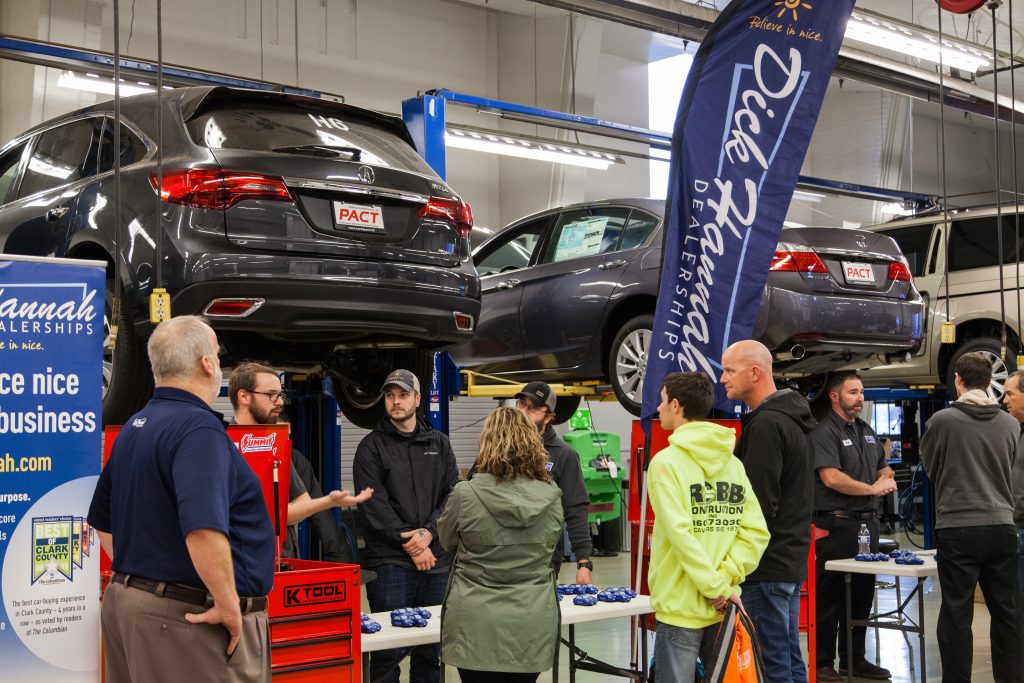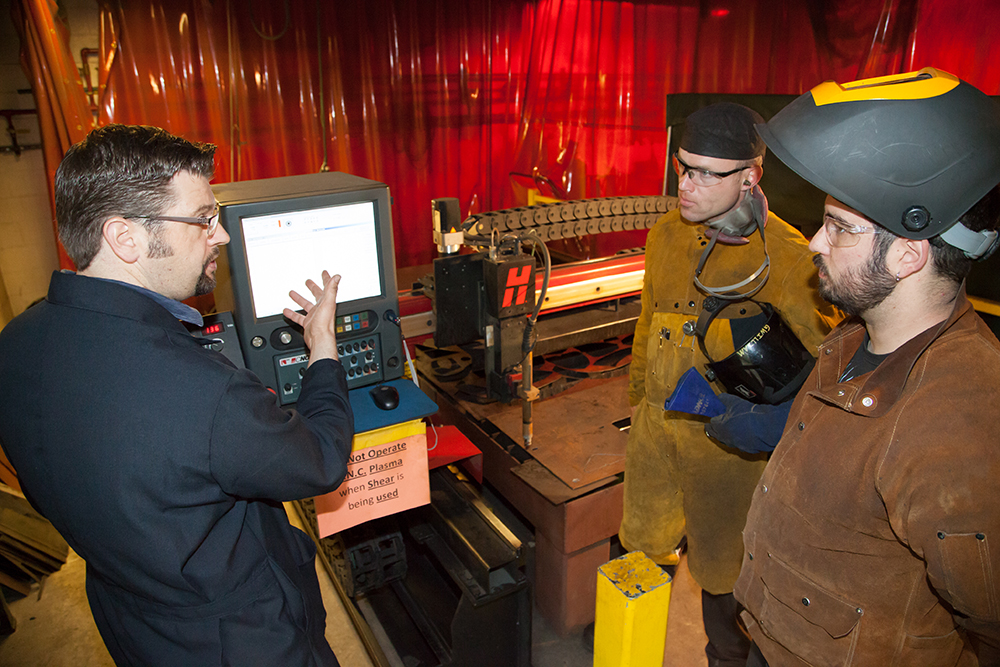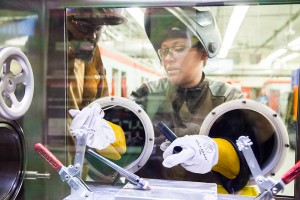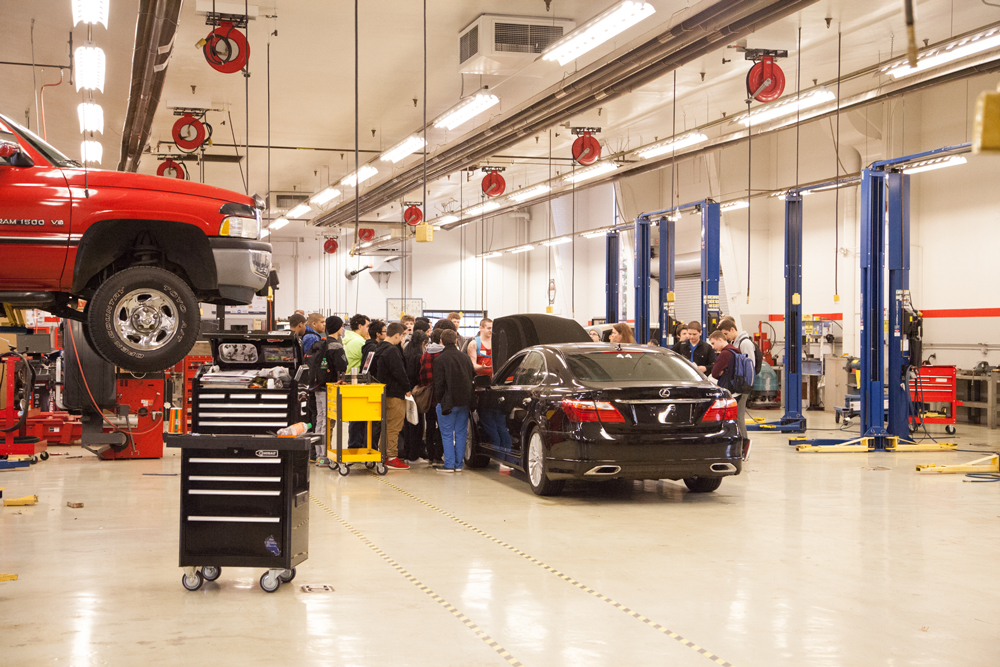
High school students visit Clark’s Automotive Technology program for a quick lesson under the hood during the 2015 Professional Technical Day.
Last Thursday 375 high school students visited Clark during its 24th annual Professional Technical Day, visiting with instructors in 18 different programs and finding out more about how to enter these fields themselves.
“Professional Technical Day is fantastic way to introduce local high school students, career counselors, teachers and administrators to the career technical educational opportunities that are available here at Clark College,” says Genevieve Howard,
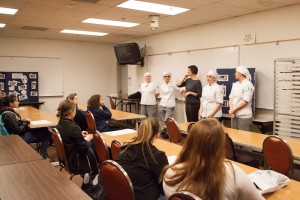
Students in Clark’s Bakery program share their experiences with high school students during the 2015 Professional Technical Day.
Clark College Dean of Workforce, Career & Technical Education. “With the reduction of career technical education programs in the high schools, this is often the first exposure many students have to these career opportunities, and I think Clark faculty and staff do a great job of getting students excited and engaged around these opportunities.”
The students came from 15 different high schools from the Vancouver and Portland area, including Mountain View, Ft. Vancouver, Union, and Grant. Each student could pick two different program presentations during the half-day event. Popular programs included Automotive (and its highly regarded Toyoto T-TEN program), Welding, Bakery, Nursing/Dental Hygiene, Early Childhood Education, Business Technology, and Medical Office.
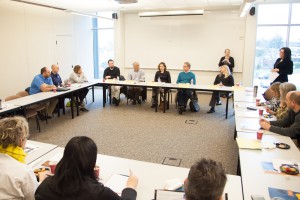
Area high school counselors and educators had a chance to hear about the future of technical careers from industry experts during Clark’s 2015 Professional Technical Day.
In addition to the students, 45 counselors, teachers, and principals attended the event. They were given a full tour of the available programs, as well as the opportunity to hear a panel discussion with industry experts about job prospects and educational requirements for today’s professional technical careers. Panelists were: Jim Lucey, human resources director of Linear Technology; Matt Houghton, general manager of Schurman Machine; Natalie Pacholl, training program specialist at SEH America; and Craig Baldwin, head of worldwide operations at nLight.
“At Professional Technical Day, high school students get a rare opportunity to interact with Clark College instructors and professors in hands-on learning environments that demonstrate the academic rigor and technical skill involved in career pathways such as: Welding Technology, Automotive Technology, Mechatronics, and Computer Networking, Science and Engineering,” says Clark College Student Recruitment Specialist Jami Fordyce, who helped organize the event. “We hope that students leave inspired and more confident than ever that college is part of their future, and that Clark College is a wonderful place to start.”
Photos: Clark College/Jenny Shadley
